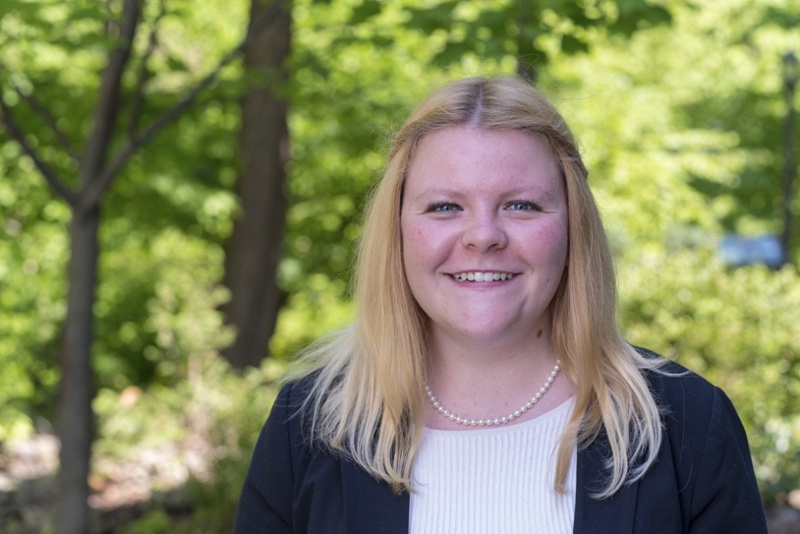Pursuing a Passion for Human Rights & Social Justice at Cornell University

Emily Martin graduated from CIPA in May of 2018 with a concentration in Human Rights and Social Justice. She is currently employed as an Analyst at the Government Accountability Office in Washington D.C. Here's what she had to say about her dedication to working in domestic policy and how getting an MPA helped her to do exactly that.
What made you choose CIPA over other programs you were considering?
I selected CIPA because of the staff. When I visited on my tour, everyone was so welcoming, willing to answer my questions, and supportive. I knew that if I ever needed anything, they would help me. I didn’t feel like just another prospective student; I felt like a unique individual who was valued for the skills and experiences I brought to the program.
What are your long-term career goals? How did CIPA help prepare you for these?
My long-term career goal is to work for the federal government and to focus either on the criminal justice system or defense. CIPA prepared me for this by connecting me to the GAO office through a networking event, providing me with Capstone and consulting projects where I gained experience working with the federal government, and offering a wide array of classes that allowed me to build a customized skill set that made me marketable for federal employment.
What would you say are the top three reasons that CIPA was a good fit for you?
1) CIPA was a good fit for me because it offered courses in which I could gain real world experiences such as Capstone and consulting.
2) While Cornell is a very large university, the MPA program is relatively small so I could receive individualized attention from the staff and get to know the people in my cohort.
3) CIPA offered a variety of courses that allowed me to pick what skills I wanted to learn based upon what I thought would be most advantageous to me in achieving my career goals.
Are there any particular “stand out” experiences at CIPA that made a lasting impact on you?
The experience that had the most impact on me was the Comparative Public Administration course, which culminated in a week-long trip to South Korea, where we participated in the Seoul Case Study Program. This experience was incredibly interesting and rewarding. I learned how different public administrations “look” around the world and how we can extract lessons on how to be better public administrators from a wide array of cultures and locations. I grew academically and professionally from this experience and it was something I would highly recommend to other students.
How would you describe the sense of community you find at CIPA?
CIPA has an incredibly unique community because the program is so diverse. People come from all across the world, are of all ages, and have very different professional experiences and career goals. This diversity was one of my favorite things about CIPA. It made class discussions and group work more interesting and it really helped me to expand my horizons and think in new and innovative ways. This newfound global perspective has served me well in working on consulting projects at CIPA, and I think it will continue to be an advantage as I move forward in my career.
What role did the Capstone play in your educational experience at CIPA?
The Capstone course was very interesting because it allowed me to work on a project for the U.S. federal government. My project focused on how to combat and prevent human trafficking globally. This project was very impactful because it taught me how to look at a macro issue such as human trafficking and determine what an appropriate scope for our research would be. The project pushed my team to define our research question early on, synthesize a wide array of research, and provide specific recommendations that would be actionable for the federal government. It was challenging but it taught me a lot about what the best approach is for a project when you have limited time and numerous avenues you could take to address the question or subject matter the client is asking you to focus on.
If you have questions about attending Cornell University's Institute for Public Affairs, we encourage you to request more information today!


